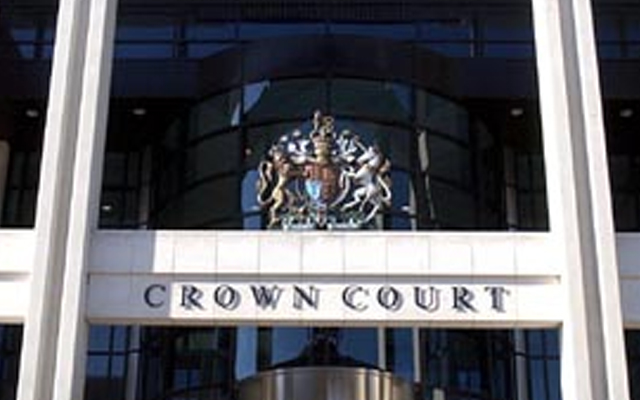Simon Walsh, a barrister who was charged with possessing ‘extreme pornography’, was acquitted at Kingston Crown court on August the 8th in what’s been called a landmark trial. Under Section 63 of the Criminal Justice and Immigration Act 2008, images are ‘extreme’ if they are, “grossly offensive, disgusting or otherwise of an obscene character… An image falls within this subsection if it portrays, in an explicit and realistic way… an act which results, or is likely to result, in serious injury to a person’s anus, breasts or genitals.”
The case has set several precedents, including special permission to tweet (#PornTrial) from the courtroom being given. Defence solicitor Myles Jackman of Hodge Jones & Allen – who blogs as Obscenity Lawyer – used Twitter during proceedings; the first time permission to do so has been granted in a British court.
More importantly, the trial has set a precedent over whether images of sexual fetishes – such as fisting and inserting objects into the urethra – can automatically be considered ‘extreme’ by authorities.
The barrister pleaded not guilty to five counts of possession of extreme pornographic images and one count of possessing an indecent photograph, in relation to material sent to his personal Hotmail account. However, he did admit taking three of the photographs – of urethral sounds being inserted into a penis – at a New Year’s Eve party, but could not recall if he had even opened the emails containing the two pictures of fisting.
Walsh, a member of the City of London corporation, was removed from his role as an appointee with London Fire Authority by Mayor of London Boris Johnson after an investigation, when charges were brought against him for the five images on his laptop. Describing himself as an “extremely happy gay man” in court, Walsh said he’d used the Hotmail account exclusively for his sex life.
Prosecutor Thomas Wilkins asked the jury to consider, “why a prominent Magistrate would jeopardise his position over activities such as fisting and sounding? Walsh would not concede they were pornographic. He said they were souvenirs. It’s a plain as a pikestaff that these images are pornographic.”
In reply, Walsh stated he did not “give up the right to a private life when he ran for public office.”
Judge Nicholas Price QC asked the jury had to decide if, “these images are of acts likely to cause serious damage.” Happily for Walsh, the jury decided they weren’t.
A large part of the prosecution case was that there are some health risks related to fisting, including “incontinence, hole in bowel, if untreated potential of death from peritonitis,” according to expert witnesses called to the court by them.
Walsh’s defence barrister responded that the acts depicted were consensual, and added: “In the fisting pic the receiver is holding a bottle of poppers… Clearly he is consenting. With the fisting pictures, they are sent with a message about ‘a sleaze night’. I say consent can be assumed. You heard there is a risk of death, but it is so low as not to pass the ‘likely to’ test.”
With parallels with the so-called ‘Twitter Joke Trial’, which recently saw a successful High Court appeal by Paul Chambers, who had his prosecution for ‘threatening’ to blow up Nottingham’s Robin Hood airport overturned, the case has attracted the attention of freedom of speech campaigners, including David Allen Green, the solicitor for the Twitter Joke Trial and scientist Ben Goldacre.
The case also has echoes of the infamous Spanner trial of 1990, which also featured the right of the state to intrude on individuals’ private and consensual sex lives.
Speaking in The Guardian, Walsh’s defence solicitor Myles Jackman said: “Simon is openly gay and enjoyed these acts in private with other consenting adults, so what has any of this got to do with the general public? Like Simon, you could be sent a potentially illegal picture via email. One which you never requested or opened, only to later find yourself in court, accused of being in possession of it.”
Jackman continued: “Unlike the Obscene Publication Act, which covers distribution, the CJIA shifts the burden on to individuals in possession of pornography. People need to know how to modify their behaviour in accordance with the law, yet it is unclear what acts constitute ‘extreme pornography’.”
Casting a worrying light on the case, as perhaps a malicious prosecution, Jackman added: “Simon is a barrister specialising in actions against the police, an alderman of the City of London, a magistrate and was formerly an aide to the Mayor of London. As a consequence of this prosecution, Simon was fired by Boris Johnson and excluded from his chambers. He ran the risk of going to prison. He had to listen to his innermost sexual fantasies discussed in court and media. This included an inaccurate accusation in the Mail Online that he had actually viewed ‘child porn’.
As the Guardian points out, anal and vaginal fisting is a perfectly legal activity between consenting adults and is even discussed in some detail in such academic papers as Fifty Shades of Grey, but images (not necessarily photographs, so cartoons may also be included) representing it have been criminalised.
Jackman also said in The Guardian: “As well as criminalising acts which are legal to perform, the CJIA would seemingly outlaw images which have been exhibited in art galleries. In 2008, the Barbican Gallery’s Seduced exhibition included photographic images of male on male anal fisting and male urethral insertion from artist Robert Mapplethorpe’s X Portfolio. The gallery cleared them with the City of London police before the exhibition opened.”
In conclusion, Jackman commented: “While prosecutions under Section 63 are not uncommon – 1,337 offences were prosecuted last year – most accused plead guilty. It is therefore rare for a jury to consider this specific situation: whether someone is guilty of a crime that could result in imprisonment due to possessing images of legal acts… So, would you even know what material might be illegal? Have you been sent junk emails and not opened them? How much do you know about operating systems caching images attached to unopened emails?”




![20 years of ETO: Harmony, Charing Cross Road, London [reprinted from issue 1, July 2003]](https://www.erotictradeonly.com/wp-content/uploads/2023/08/NEWS_20YEARS_HARMONY_ISSUE1-238x178.jpg)











